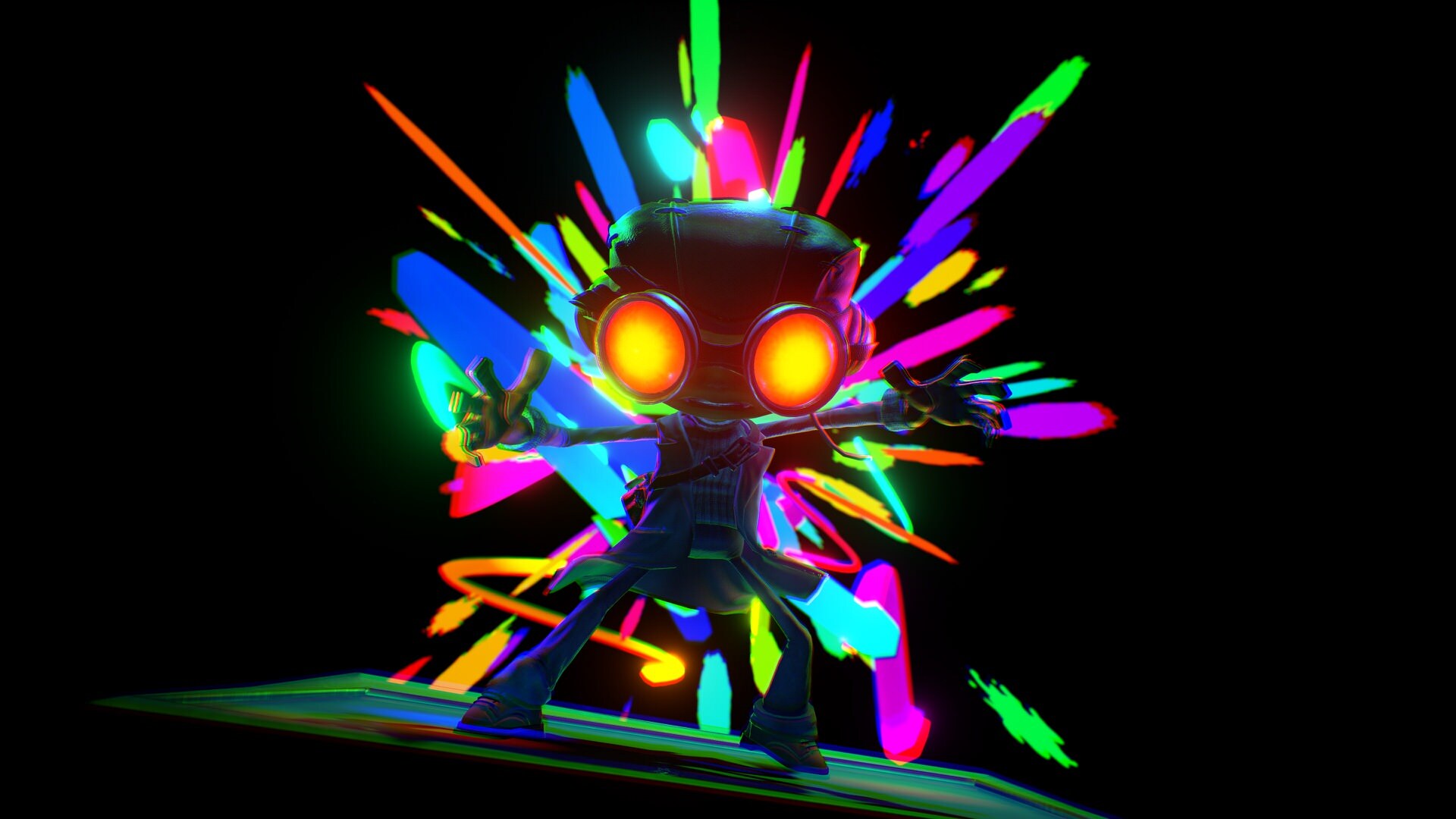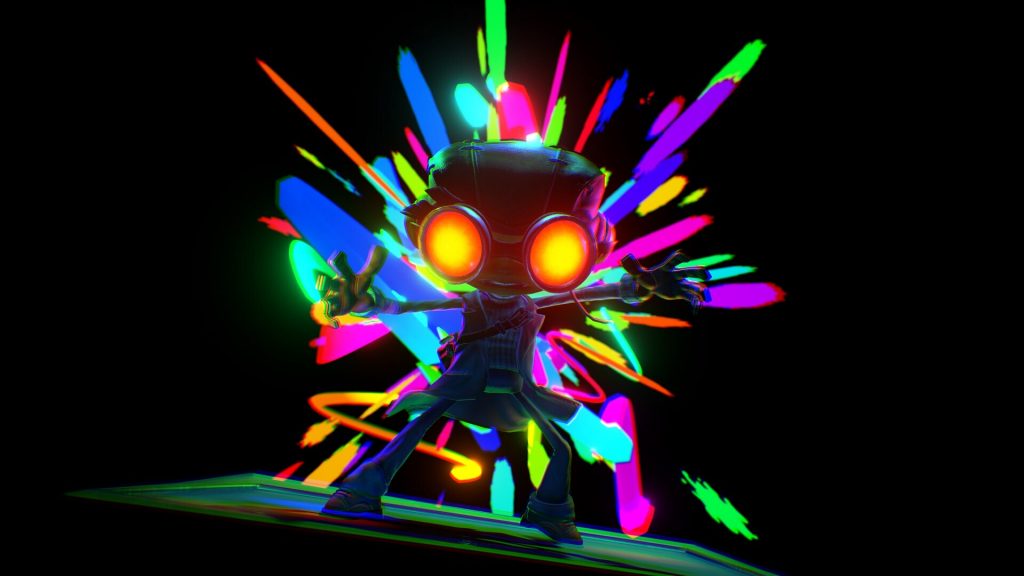

It’s been over 16 years since Psychonauts released and nearly 6 since its sequel was announced, and while fans got a bite-sized virtual reality adventure back in 2017 with Psychonauts in the Rhombus of Ruin, yesterday was the big day for those waiting on the next full-length adventure from Razputin Aquato and the rest of the Psychonauts.
It’s the long-awaited release week of Psychonauts 2, and the folks at Double Fine Productions know how much the title means to some fans. That’s one of the many reasons they worked hard to keep the sequel as true to the original as possible in some respects — like bringing back veteran composer and Double Fine founder Tim Schafer’s go-to musical collaborator, Peter McConnell (Sly Cooper 2-4, pretty much every Star Wars/LucasArts game from the ‘90s and 2000s, Hearthstone), to handle the soundtrack once again.
With the Psychonauts 2 launch now officially upon us, SPIN spoke with McConnell to chat about building the world of Psychonauts, returning for the latest installment, and a whole lot more from his 30-year career.
SPIN: Both for people who played the first game and newcomers to the series, what would you say folks should expect from Psychonauts 2 and the soundtrack?
Peter McConnell: There is a certain amount of campy, tongue-in-cheek humor in the Psychonauts universe, but there are also serious and dark themes — especially in Psychonauts 2. Expect a whimsical, fantastical world with landscapes as diverse as the human imagination. The score explores this world by stretching the limits of genre — everything from epic orchestral music to jazz ensemble, psychedelic ‘60s band, heavy metal, folk ensembles, [and] even game show music. I was able to work with some of my favorite musicians from around the world, literally from Orlando to Beijing.
How did you explore all of those genres and capture the different moods of each of the various settings, all while still making them seem a part of one larger connected world?
I used melody as the main unifier. Each character has a theme, and the Psychonauts as a whole have a theme, as does the villain. You will hear the character themes embedded in just about every piece of music. For example, there is an important character you meet in the ‘60s psychedelic world, whose theme comes back in very different settings once you have freed him from his mental confines. The Psychonauts’ theme itself is just about everywhere — except maybe the game show music — that piece is all about the game show.
Considering that we’re rapidly approaching your 30th anniversary of composing scores for video games, how have you seen music in video games change over the decades both for yourself and the industry as a whole?
Well, of course some things are very different, especially the production values. When I started, we couldn’t even have recorded live music. It had to play back on a synthesizer chip, and authoring the music was partly a programming job — and a lot of us wore many hats. Besides music and programming, I even did some voice acting. Now, things are much more specialized, the stakes are much higher, and our industry is part of pop culture, as opposed to being the geeky little niche world it was when I started.
That said, some things never change. A game still has to be fun. Stories still have to be good. Music and sound are still there to support the emotion. These things go back to before I even started. I often say that if you had told me in the early ‘90s that one day I would be writing game scores for 70-piece orchestras, I would have thought you were joking. But honestly, when I look back and remember, that’s not quite true. We all had an idea that games would be bigger someday.
How did the pandemic affect your ability to compose and record this score?
It was a real challenge on many levels. The biggest obstacle was that you couldn’t get an orchestra together on a stage to record — pretty much anywhere in the world. I was very fortunate to have a longstanding relationship with the Melbourne Symphony Orchestra, and Australia’s situation was a bit different than here in the U.S. They were able to get 20 or 30 people on a stage by December 2020, and we were thus able to record the orchestra in sections — strings and winds, brass and percussion. This turned out to be a huge advantage, because we had more control over the final mixes and more options for playing different layers of the music in the game. It did take more time, though.
Seeing as you’ve worked on a number of sequels in the past, what changes for you when returning to an IP as opposed to starting a new one from scratch?
I really enjoy returning to an IP, because I get to use what I have learned since the last time I worked on it. Psychonauts was made under a much tighter budget, and all recorded in my apartment — much to the chagrin of the neighbors. There are things I wanted to do then that I simply didn’t have the means to do. I can’t tell you how rewarding and satisfying it has been to explore those old themes, write some new ones, and give them some real time to develop in a larger score — and then to be able to work with exactly the folks I wanted to work with, whether in Melbourne, Nashville, or here in the Bay Area.
What’s your favorite level from any of the Psychonauts games, and why is it the Milkman Conspiracy?
[Laughs.] How could it not be?! Who doesn’t relate to a character desperately trying to keep everything in order? That level in the original Psychonauts allowed me to do a little comic homage to Bernard Herrmann and music from The Twilight Zone and The Day the Earth Stood Still — and I worked hard on that theremin sound!


Leave a comment